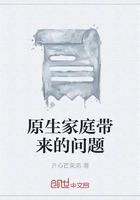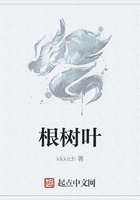(3.xviii.4) The return from them is either money or commodities. The reader is by this timefully aware that a country derives no advantage from receiving money, more than from receiving anyother species of commodity. It is also plain that where the colony has not mines of the preciousmetal, it cannot, under the monopoly of the mother country, have money, or any thing else,beside its own productions, to send.
(3.xviii.5) It is needless to consider the case or free trade with a colony, because that fallsunder the case or trade with any foreign country.
(3.xviii.6) The monopoly, which a mother country may reserve to herself, of the trade withher colonies, is of two sorts.
(3.xviii.7) First of all, she may trade with her colonies, by means of an exclusive company.
In this case, the colony has no purchaser, to whom she is allowed to sell any thing, but theexclusive company; and no other seller, from whom she is allowed to buy any thing. Thecompany, therefore, can make her buy, as dear as it pleases, the goods which the mother countrysends to her, and sell, as cheap as it pleases, the goods which she sends to the mother country. Inother words, the colony may, in these circumstances, be obliged to give for the produce of acertain quantity of the labour of the mother country, a much greater quantity of goods than themother country could obtain, with the same quantity, from any other country, or from the colonyin a state of *******.
(3.xviii.8) The cases of a trade in these circumstances are two: the first, where the colonyreceives from the mother country, luxuries, comforts: the other, where she receives necessaries;either the necessaries of life, or the necessaries of industry, as iron, &c.
(3.xviii.9) In that case, in which the colony receives luxuries and comforts only from themother country, there is a limit to the degree in which the mother country is enabled to profit by thelabour of the colony. The colony may decline receiving such luxuries or comforts, if obliged tosacrifice for them too great a quantity of the produce of her labour, and may think it better toemploy that great proportion of her labour, in providing such luxuries and comforts as sheherself is capable of producing.
(3.xviii.10) If, however, the colony is dependant for necessaries upon the mother country,the exclusive company exercises over the colony a power altogether despotic. It may compel her togive the whole produce of her labour, for no more of the necessaries in question, than what isjust sufficient to enable the population of the colony to live. If it is the necessaries of life, whichthe colony receives, the conclusion is obvious. If it is commodities, such as iron, and instrumentsof iron, without which her labour cannot be productively employed, the result is precisely thesame. She may be made to pay for these articles so much of the whole produce of her labour,that nothing but what is necessary to keep the population alive may remain. It would be theinterest of the mother country, not to lessen the population; because, with the population, theproduce would be lessened, and hence the quantity of commodities which the mother countrycould receive.
(3.xviii.11) Instead, however, of trading with her colonies by means of an exclusivecompany, the mother country may leave the trade open to all her own merchants, only prohibiting thecolony from trading with the merchants of any other country. In this case, the competition of themerchants in the mother country reduces the price of all the articles received by the colony, aslow as they can be afforded-in other words, as low as in the mother country itself, allowancebeing made for the expense of carrying them. If it be said that the colonies afford a market; Ireply, that the capital, which supplies commodities for that market, would still preparecommodities, if the colonies were annihilated; and those commodities would still findconsumers. The labour and capital of a country cannot prepare more than the country will bewilling to consume. Every individual has a desire to consume, either productively orunproductively, whatever he receives. Every country, therefore, contains within itself a marketfor all that it can produce. This will be made still more evident, when the subject ofconsumption, the cause and measure of markets., comes under consideration. There is, therefore,no advantage whatsoever derived, under ******* of competition, from that part of the trade witha colony which consists in supplying it with goods, since no more is gained by it, than suchordinary profits of stock as would have been gained if no such trade had existed. It isnevertheless true that the colony may lose by such a traffic, if the goods, which she is thuscompelled to purchase of the mother country, might have been purchased cheaper in othercountries.
(3.xviii.12) If there be any peculiar advantage, therefore, to the mother country, it must bederived from the cheapness of the goods, with which the colony supplies her. It is evident, that ifthe quantity of goods, sugar, for example, which the colony sends to the mother country, is sogreat as to glut the mother country; that is to supply its demand beyond the measure of othercountries, and make the price of them in the mother country lower than it is in other countries,the mother country profits by compelling the colony to bring its goods exclusively to her market,since she would have to pay for them as high as other countries, if the people of the colony wereat liberty to sell wherever they could obtain the greatest price.












